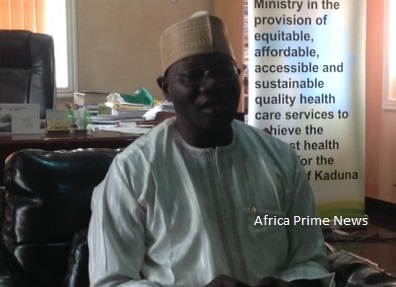
By Amos Tauna
Kaduna State Commissioner for Health, Dr. Paul Manya Dogo has said that 35% of Nigerian women are barren thereby placing her the 5th highest country in the world with disability problem of infertility.
He also explained that 33 per cent of Nigerian women that give birth are always eager to give birth again.
Speaking through the Deputy Provost, Kaduna State College of Medicine, Dr. Joel Adze on the official commissioning of a private hospital in Kaduna, the commissioner observed that 36 per cent of Nigerian women give birth in the hospital, stressing that the rest of the women give birth at a low standard environment thereby resulting in being associated with infected diseases.
He added that the infected diseases sometimes resulted in HIV/AIDS and other diseases that hinder women from giving birth at a later stage in their lives.
Social problems associated to infertility, according to him, include stigmatisation, divorce and other problems the woman encounter in life.
Barrenness leads some women engaging in multiple sex with different men in an attempt to get pregnant, pointing out that it results to being infected with diseases, he said.
The commissioner explained that the treatment of infertility is costly in the country, stressing that the equipment are costly and require high skills to be able to manage them.
He decried that there was a decline in the health budgetary in the country as a result of insecurity in most parts of the country.
He called on government to seek and assist the provision of high technology by way of partnering with the private sector for an affordable and sustained health facilities in the country.
The founder Nisa group, Dr Ibrahim Wada said that the first Infertility and In Vitro Fertilization baby was born to Kaduna parents in 1998 by name Hannatu Kupchi.
He explained that there are so many cases of barrenness in the country, noting that the hospital was putting more efforts to wipe away the tears of many families.
The multiple cases of sickle cells, according to him, could also be treated by Nisa hospital .